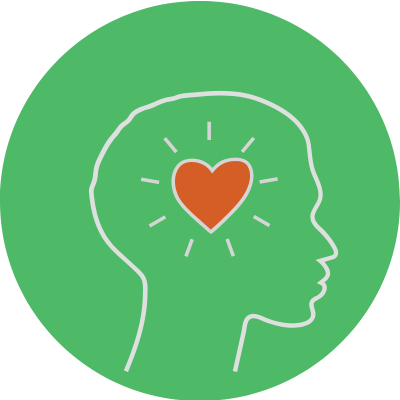Article provided by Mental Health Recovery Board, Warren and Clinton Counties

As the U.S. population ages, mental health issues among older adults are becoming an increasingly pressing public health concern. According to the Substance Abuse and Mental Health Services Administration (SAMHSA), more than 20% of the U.S. population is now aged 60 or older, and this demographic shift brings with it unique mental health challenges.
Recent data from the 2021 and 2022 National Surveys on Drug Use and Health (NSDUH) reveal that among adults aged 60 or older, approximately 1 in 8 used illicit drugs in the past year, 1 in 11 had a substance use disorder (SUD), and 1 in 8 experienced any mental illness. These figures underscore the need for targeted mental health services for the aging population.
Older adults often face heightened sensitivity to substances, which can lead to injury and complicate existing medical conditions. Despite these risks, many older adults do not receive appropriate diagnosis and care, partly due to challenges in navigating the healthcare system.
To address these issues, SAMHSA emphasizes the importance of integrated care approaches. The agency’s “Supporting the Mental Health Needs of Older Adults” report highlights evidence-based practices (EBPs) that have proven effective in addressing mental health challenges faced by older adults. These practices include psychosocial interventions tailored to the unique needs of this population.
Click here to read the report.
One such framework is the 4Ms for Behavioral Health (4M-BH), developed by the E4 Center of Excellence for Behavioral Health Disparities in Aging. This framework focuses on four interrelated elements of high-quality care for older adults: What Matters, Medication, Mentation, and Mobility. It provides a flexible approach for clinicians to assess and address the mental health and substance use needs of older adults.
Access to care remains a significant barrier. A study by the Commonwealth Fund found that 26% of Medicare beneficiaries in the U.S. who reported having a mental health condition missed or delayed treatment because of costs. Additionally, there is a shortage of providers for behavioral health care compared to physical health care, further limiting access for older adults.
To support older adults and their caregivers, SAMHSA offers online resources which highlight interventions, treatment improvement protocol and suicide prevention.
Local alcohol, drug addiction, and mental health (ADAMHS) boards have resources on their website and, should the need arise, contact information for local agencies to assess and treat mental health concerns. See more below.
As the aging population continues to grow, addressing the mental health needs of older adults requires a concerted effort from healthcare providers, policymakers, and communities. By implementing integrated care models and expanding access to evidence-based interventions, it is possible to improve the mental health and overall well-being of older adults across the nation.
How to contact your local Mental Health Recovery Board:
| Hamilton County | 513-558-8888 | www.hcmhrsb.org |
| Warren and Clinton counties | Crisis hotline: 877-695-6333 or call 9-8-8 General needs: 513-695-1595 | www.mhrbwcc.org |
| Clermont county | 513-732-5400 | https://ccmhrb.org |
